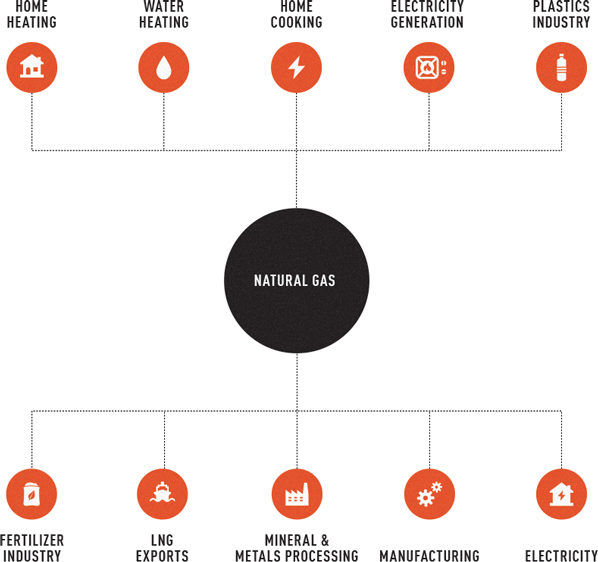Uses of natural gas and oil
Fuel
Gas is widely used in electricity generation. Because gas-fired generation is reliable and can be quickly started and stopped, it can be used for both baseload and peaking power. It can also be used to fill gaps in renewable power generation when wind or sunshine are not available.
Gas is also used for cooking, heating houses and buildings, and heating water.
It is also important for fuelling many industrial operations, including glass and steel foundries, and aluminium and nickel smelters.
Gas can also be used for fuel in the form of compressed natural gas (CNG) or liquefied natural gas (LNG) as a transportation fuel.
Manufacturing
Gas is used in manufacturing a wide range of industrial products, including plastics and polymers, textiles and paints and dyes.
Gas is also very important in the production of fertilisers.

Uses of oil
Oil is the world’s most important fuel and underpins our high standard of living.
It provides modern convenience and freedom of movement and is crucial to transport systems.
By-products from oil refining are also valuable. They are used in the production of plastics and chemicals, as well as many lubricants, waxes, tars and asphalts.
Nearly all pesticides and many fertilisers are made from oil or oil byproducts.
Australia has produced oil commercially since the 1960s, but domestic production has fallen in recent years, and currently Australia is only able to cover approximately 42% of its demand.

